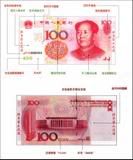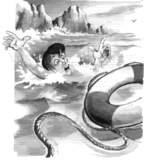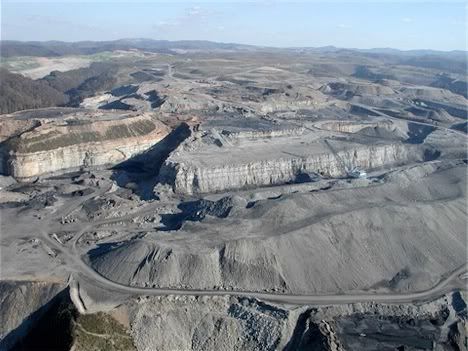(11 am. – promoted by ek hornbeck)
Burning the Midnight Oil for the Next American Revolution
Now up at Agent Orange
 As people look back to the decade just past, and as we look ahead to the long, hard job ahead of us, many people describe the decade in many different ways – tumultuous, chaotics, catastrophic, liberating, tragic, joyous – but it seems that nothing recycles so easily as a phrase, and so the punditry online seem to have settled on The Roaring Teens.
As people look back to the decade just past, and as we look ahead to the long, hard job ahead of us, many people describe the decade in many different ways – tumultuous, chaotics, catastrophic, liberating, tragic, joyous – but it seems that nothing recycles so easily as a phrase, and so the punditry online seem to have settled on The Roaring Teens.
But consider how it could have all gone so badly wrong, had the American Empire not collapsed. Whether you were thrilled or dismayed by the Roar in the Roaring Teens, consider what might have happened to our revived Republic had history taken a different turn in the aftermath of the Currency Collapse of 2011.
It is this perspective I wish to offer, since I can recall the New Year of 2010 arriving, and I feared much of what did in fact happen in 2011 – and yet because I did not see the possibility of the liberation of our nation from our self-imposed shackles of Empire, I did not for a minute imagine what the decade would bring.

The Currency Crisis
I recall people at the time writing about the risk that China would “unload” US Savings Bonds, as if China had bought the Savings Bonds as an investment. The reality was, of course, that they bought the bonds to keep the US$ expensive and the yuan cheap (well, to keep the renminbi cheap, in those days before full convertability).
The other reality, which was tracked by a different set of people with a different set of interests, was domestic Peak Coal for China. Late in the Do-Nothing Noughties, people heard promises from China that they would reduce carbon emissions and invest in carbon neutral technologies, but did not put two and two together: the speculation regarding peak domestic coal for China was very real, and was coming much faster than outsiders were allowed to understand.
And so, silently, stealthily, China shifted its “currency basket peg” away from the US$ and to the Euro and Yen and Pound Stirling and Swiss Franc and Australian Dollar. It was not entirely off the radar, but since they moved the peg itself to keep the yuan/US$ rate from moving very far, very fast, it was lost in the noise of the countless phony emergencies generated by the typical “news” infotainment of the Do-Nothing Noughties.
 And it maybe that they would not have acted quite as they did, but the Federal Reserve controversy of the summer of 2011 broke out, starting as a gambit aiming for some advantage in some long forgotten policy fight over whether to do too little, too late, both, or nothing at all. And they were faced with the choice of whether to keep sliding their peg – and what they knew that would mean for domestic inflation, given their need for dramatically larger coal imports from the United States to tide them over as they kept ramping up their New Energy power sources.
And it maybe that they would not have acted quite as they did, but the Federal Reserve controversy of the summer of 2011 broke out, starting as a gambit aiming for some advantage in some long forgotten policy fight over whether to do too little, too late, both, or nothing at all. And they were faced with the choice of whether to keep sliding their peg – and what they knew that would mean for domestic inflation, given their need for dramatically larger coal imports from the United States to tide them over as they kept ramping up their New Energy power sources.
And of course, with the limp US recovery from the recession barely over, compared to the strong European and Japanese recoveries, as far as maintaining their export surge, the Euro and the Yen were where it was at … the US market didn’t seem nearly as important as the possibility of buying cheap coal from Americans desperate to earn foreign exchange. It seemed very much as if the growth opportunities in the American market were behind China, not ahead.
And so, they stopped shifting their peg.
They, of course, had not been so short-sighted that they forgot their southern flank. Indeed, the currency basket peg had been developed by Singapore, and its spreading use across ASEAN in 2010 had seemed to be a technical issue, when it was not described as a “response to US pressure”.
And while India was not “in on it”, there were Indian officials who were watching their rival and sometime adversary more closely than many others, and had already started arguing the case for the switch. In the face of the dramatic fall of the US$ in the summer of 2011, India adopted a currency basket peg with an unspecified but clearly only token US$ component.
Five years before, the world had been roughly half floating and half pegged, and the pegs were mostly to the US$. By the fall of 2011, the world was half floating and half pegged to hidden baskets that very clearly had very few US$ in them.
 As Jon Stewart asked, “Why do they call it floating when all we are doing is sinking?” – leading, lest we forget, to calls for his resignation and return to the Comedy Channel from the ever more strident and ever less relevant conservative movement.
As Jon Stewart asked, “Why do they call it floating when all we are doing is sinking?” – leading, lest we forget, to calls for his resignation and return to the Comedy Channel from the ever more strident and ever less relevant conservative movement.
What happened was not inevitable
This is not to refresh anyone’s memory – all of this is quite familiar. It is to bring the events to the forefront and ask, what if we had clung to Empire in the face of this crisis?
It seems so obvious today. Our ability to afford what turned out to be over a thousand foreign bases had been eroding for decades. And now, with a dollar trading at €0.34, ¥46, £0.32, 0.40 Swiss Franc, A$0.57 – the costs were exploding.
(Actually, take a moment and reflect on that – ten years ago, most of those would have been quoted as how expansive or cheap they were in US$, not how expensive or cheap the US$ is in the hard currencies of the world.)
And so the wise heads of the two establishment parties put together an austerity budget that would allow the US to continue paying the exploding costs of these establishments – and the consensus cracked.
It started with a filibuster in the Senate by some faction pursuing some narrow partisan advantage, as was normal for the decades just past. And so it was bounced over to the House.
But Congressmen are skittish, and the new Congressmen on both sides of the aisle from the “kick the bums out” wave of 2010 were in no mood for a grim austerity budget. The radicalized right wing of 2010 entered another of their rages on “wasting our money protecting German wealth from the damn Russkies”. A bloc of Democrats who had held on by the fingernails in 2010 based on an uptick in “Green Jobs” were not about to cut back on their lifeline.
The so-called “Progressives” of the day, a motley mix of progressives, social liberals, and moderate Wall Street Democrats, fractured in the Great Defense Budget fight (wasn’t it LIVE-FREE? In those days, if the name sounded good, that was supposed to replace actual sound legislation). So did the smaller Populists. But the balance from both took up the war cry of the radical right wing fringe.
They hit on covering the budget black hole – under the arcane rules of the day – by withdrawing from Europe by May 8, 2015, the 70th Anniversary of Victory in Europe day. Some clever soul called it the “Seventy Year Itch for a Real Victory Parade”, quickly shortened to “The Victory Parade Strategy”, and by then the dam had broken.
The administration fought it, the Pentagon Establishment fought it, but first a wave of primaries were won on promises paid for by retreating from this or that piece of foreign soil, and then a wave of general election victories won, on both the right and the left, and there was nothing to do but to accommodate it. The new House would not fund the foreign bases, and there was no way to make them.
Why Did We Ever Fear a Currency Collapse?
What is important to recall, as we look back at this glorious throwing aside of the shackles of Empire, is that it could have all come undone. A disaster, another Lyon Bombing, except in LA, and it might have all come apart.
Instead, the second impact of the great Current Collapse was felt. Fewer foreign students came to the US hoping to win a US green card – but when foreign students compared US Universities to the cost of foreign study at British or German or French or even Australian Universities, they kept coming, and then started coming in larger numbers.
Most of the rest of the world was not seriously affected by the Currency Collapse – it was, indeed, a US Dollar Collapse. The Canadian Dollar and Mexican Peso suffered collateral damage, but most countries were largely unaffected.
And so US machine tool exports boomed – often to unexpected locales and in competition with Chinese rather than European or Japanese producers. Foreign film-makers came to California to film movies set in Berlin and Paris and London and Sydney – to save on production costs. Japanese and German industrial software firms set up offshore branches in Silicon Valley in California and the Information Corridor in Massachusetts.
The US slipped toward into a recession in 2011, but was pulled out again in 2012 by the export surge.
 A critical part of the Victory Parade coalition had been from Great Lakes and Midwestern states battered by two decades of import-for-profits “globalization”, clinging desperately to the slender reed of hope offered by so-called “Green Jobs”. Those policies seemed like more too little, too late on their own. But they met the rising tide of US$ oil prices, the wave of Chinese take-overs of US coal companies aiming at shifting US coal to export markets, the export boom, and US production capacity started growing at headlong rates.
A critical part of the Victory Parade coalition had been from Great Lakes and Midwestern states battered by two decades of import-for-profits “globalization”, clinging desperately to the slender reed of hope offered by so-called “Green Jobs”. Those policies seemed like more too little, too late on their own. But they met the rising tide of US$ oil prices, the wave of Chinese take-overs of US coal companies aiming at shifting US coal to export markets, the export boom, and US production capacity started growing at headlong rates.
And that relentless growth in investment, of course, was a big part of the Roar in the Roaring Teens.
But It All Might Never Have Happened
But count the number of ways it could have failed to happen. Suppose that the Federal Reserve controversy was successfully hushed up and papered over, as the Great Bank Robbery of the Noughties was first papered over with a flood of liquidity, then turned into an economic crisis, then finally lost sight of in the relentless generation of new mini-emergencies from the adrenaline addicted infotainment media of the era.
Suppose that the Currency Collapse had not happened in the aftermath of a “kick the bums out” election, or suppose that the “kick the bums out” sentiment had not spilled out the way it did to hit Congressmen in both parties.
Suppose that the Progressives or Populists in the House had held together, and held together on the basis of support for the Austerity Budget, which would have thrown the US into a deep recession and, so close to the previous one, quite possibly a “Not Nearly So Great” Depression.
Suppose that the Lyon Bombing had happened in LA, or St. Louis.
And its not like the new media in 2011 played the positive role that it now remembers. The heady days of 2013 and 2014 cast a rosy glow back to 2011 – but in 2011 itself, the new media were “going ballistic”, as we used to say. The sky was falling, it was the administrations fault, the Republicans fault, the Democrats fault, an evil plot by the Chinese, an evil plot by the Illuminati using the Chinese as their cover story.
Once the breakthrough was made, the new media played a useful role in the wave election of 2012, and once that election was won, an even more useful role in winning more useful than useless “peace dividends”.
 Indeed, I have encountered peace activists who blame the early flailing around of the New Media for the “lost opportunity of 2011”.
Indeed, I have encountered peace activists who blame the early flailing around of the New Media for the “lost opportunity of 2011”.
The “Victory Parade”, after all, primarily involved Eurasia. We left Japan, but not Australia. We left Europe, but our presence in southern Africa grew. Most Caribbean states would be hard pressed to pin point the fall of the American Empire, since it feels like no such thing in Jamaica or Trinidad. Even today, the Department of the Navy oversees the largest navy on the face of the globe,dominating the Caribbean, west and south Atlantic, the east and south Pacific. The Department of War oversees bases on four continents.
 And of course, Climate Chaos presses us ever harder. Certainly, we seem better placed to address it than it ever seemed we would, especially following the nationalization of US coal mines, and the “Two Centuries of Coal” conservation strategy that followed.
And of course, Climate Chaos presses us ever harder. Certainly, we seem better placed to address it than it ever seemed we would, especially following the nationalization of US coal mines, and the “Two Centuries of Coal” conservation strategy that followed.
But all but the most incurable optimist will now admit that “better placed than before” may well end up being barely good enough for many and simply not good enough at all for many as well.
Still, nearing retirement, I am above all things a Pragmatist with a Capital P. Compared to the total mess that we could have made of things – and the total mess we would have made of things, if we had continued down the course set in the Kamikaze Nineties and the Do-Nothing Noughties – we are in far better shape than we had any right to expect.
And so, reflect on what damage could have been done if, instead of bringing down the Empire – the Empire we could not call be name while it lasted – we had wasted the Teens on a hopeless effort to save it. If not in Depression we would be teetering toward it. If not at war, we would have been lurching toward it. If not in climate hell, we would have been slipping inexorably toward it.
So tonight, let us raise a glass of near-export quality sparkling wine, and give a rousing toast for the Fall of the American Empire.
Few of the sins of the father, are visited upon the son
Hearts have been hard, our hands have been clenched in a fist too long
Our sons will never be soldiers, our daughters will never need gunsThese are the years between
These are the years that were hard fought and won
Contracts torn at the edges, old signatures stained with tears
Seasons of war and peace, these should not be forgotten years
Still it aches like tetanus, it reeks of politics
How many dreams remain? this is a feeling too strong to containThe hardest years, the darkest years, the roarin years, the fallen years
These should not be forgotten years
The hardest years, the wildest years, the desperate and divided years
We will remember, these should not be forgotten yearsOur shoreline was never invaded, our country was never in flames
This is the calm we breathe, this is a feeling too strong to contain
Still it aches like tetanus, it reeks of politics
Signatures stained with tears, who can remember
We’ve got to rememberThe hardest…
Forsaking aching breaking years, the time and tested heartbreak years
These should not be forgotten years
The blinded years, the binded years, the desperate and divided years
These should not be forgotten years, remember

22 comments
Skip to comment form
Author
is not front page news!
It’s a big deal, as I recall.
I guess the Corporate Media,
doesn’t want to celebrate the end
of the US Superpower era.
That, or they’re too clueless to realize?
thx for reporting this important News BruceMcF,
as you always do.
btw, How long does it take to learn
to speak Euro, lol?
The inevitable became inevitable when our currency was disconnected from actual valuation. In-house this isn’t usually an issue. When other countries are buying in (foreign debt) it’s… inevitable. We could be trading in cowry shells or glass beads or porcupine quills. We do paper instead. Now just bits and bytes. Once the valuation is gone (or inflated to unsustainable levels), it’s… inevitable.
We can always go back to cowry shells, you know… §;o)
since so much of the Mexican econ is based on tourists, and the American tourists done be broke.
was 14 to 1 USD.